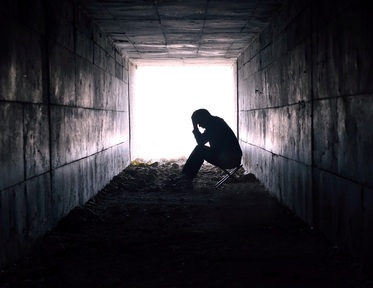People with mental ill health in Scotland face 'loneliness, isolation and unemployment'
Although many people with severe mental ill health in Scotland are in touch with community mental health services and receive some positive aspects of care and support, a significant proportion still experience loneliness and isolation.

According to a study conducted by the Mental Welfare Commission, most people were found to be satisfied with their care and treatment, visited local mental health care teams regularly and had good arrangements for crisis planning.
Yet, while the large majority of people had regular physical health checks and were satisfied with their housing, only three of the 59 people involved in the study were employed.
Colin McKay, chief executive of the Mental Welfare Commission, said: “Most of our visits to people with mental ill health take place in hospital. But we know that many people with severe and enduring mental ill health live in the community and we wanted to hear their views on their care and treatment and how they were getting on more generally.
“All of those we visited were connected to community mental health services, and they had positive experiences of that support. But while people's lives were safe and stable, there was also a sense of low expectations, of little belief that life might offer more opportunities in the future.
“We would like to see more ambition from local authorities, the NHS and integrated joint boards in helping those with severe and enduring mental ill health to feel positively about their chances of getting back to work, and engaging more.”
The study involved interviews with 59 people in every mainland health board in Scotland and with one island authority. All of those interviewed were identified by local community mental health services and had been diagnosed with a significant mental health illness for more than one year.
Findings from the report revealed that most people had good informal support systems and good connections in the community with family, neighbours and friends, yet a significant number of people experienced some loneliness and isolation. Some said they felt lonely at specific times or that they felt lonely because they had lost social networks.
While some people said they were active and involved in a range of activities, others suggested they had ‘restricted lives’ where their main contacts were only with professional support staff.
The ‘Visit and Monitoring Report’ includes a range of recommendations, including a call for community mental health services to have a clear focus on recovery.
The report also calls for the Commission to discuss with the Care Inspectorate the ways in which their inspections of community services can look at how those services are promoting well-being.
A further recommendation asks the Scottish Government to include a stronger focus on employment support in the next mental health strategy.
Mr McKay added: “The Scottish Government is consulting now on its next strategy for mental health, which includes a commitment to ensure that employment and welfare programmes are designed to take account of mental health conditions. This is encouraging and we hope to see real progress in the coming years.”
The Mental Welfare Commission for Scotland protect and promote the human rights of people with mental health problems, learning disabilities, dementia and related conditions. They check if individual care and treatment are lawful and in line with good practice, empower individuals and their carers through advice, guidance and information, promote best practice in applying mental health and incapacity law and influence legislation, policy and service development.
For more information on the report, visit: www.mwcscot.org.uk
Latest News
 29-Jul-24
Dementia Bus gives carehome.co.uk staff insight into life with dementia
29-Jul-24
Dementia Bus gives carehome.co.uk staff insight into life with dementia
 27-Jul-23
UK's top home care agencies in 2023 revealed
27-Jul-23
UK's top home care agencies in 2023 revealed
 30-Nov-22
A quarter of older people keep their falls secret from family
30-Nov-22
A quarter of older people keep their falls secret from family
 29-Nov-22
'Covid-19 has not gone away' say terminally ill
29-Nov-22
'Covid-19 has not gone away' say terminally ill
 28-Nov-22
IT consultant who received poor care opens 'compassionate' home care business
28-Nov-22
IT consultant who received poor care opens 'compassionate' home care business